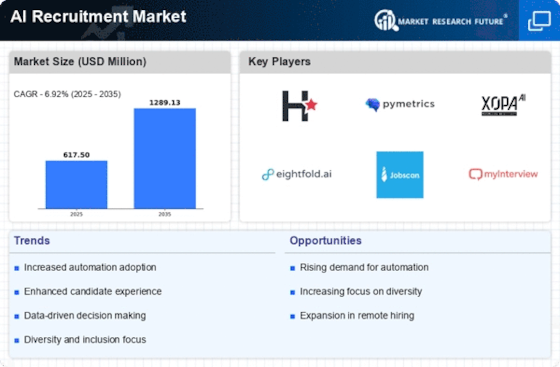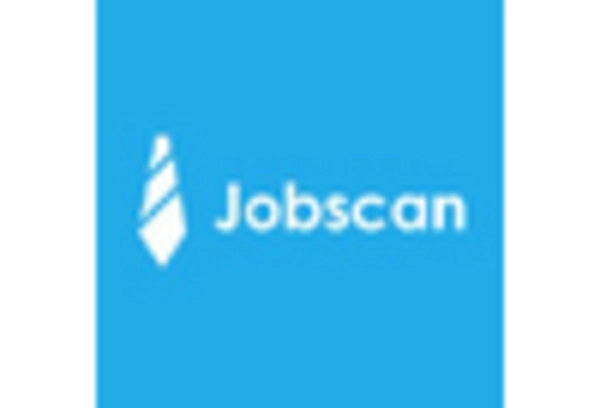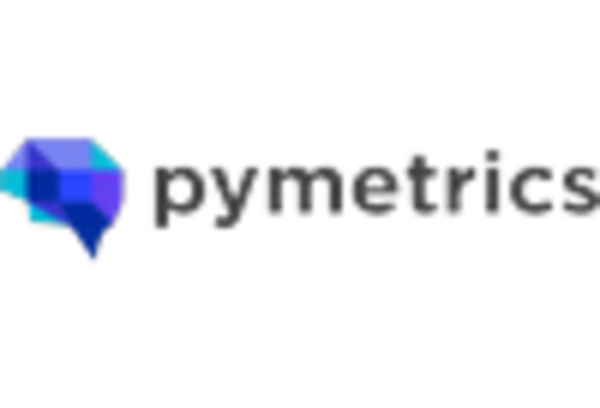Market Trends
Key Emerging Trends in the AI Recruitment Market
With an increasing number of organizations looking to automate and improve their hiring processes with AI, the market for recruiting by artificial intelligence is witnessing a dramatic change. One notable trend is the increased use of artificial intelligence-based applications for candidate sourcing and screening. These technologies allow recruiters to review in a short time large numbers of resumes, identify the best candidates and match them with suitable employment opportunities. This shortens the process, and more directly targets talent acquisitions; increasing efficiency in recruitment.
Yet another significant development is the inclusion of chatbots and virtual assistants in the initial stages of recruitment. These tools use AI to interact with candidates, answer their questions and do preliminary interviews. Recruiters can thereby concentrate on tasks of a more strategic nature, such as assessing cultural fit and testing soft skills. This will improve the candidate's experience and streamline operations within your recruitment workflow. Predictive analytics in the AI recruitment landscape uses machine learning algorithms. Lots of recruiters are now using these algorithms to analyze historical data and find patterns that can help predict whether a candidate will be successful in any given role. Here this data-driven approach helps organizations make more informed decisions about who to hire, leading in turn to better hires and higher retention rates.
In addition, the trend of remote work has also led to advances in AI tools that make virtual hiring processes easier. Facial expressions, language tone and other non-verbal cues are assessed by video interviewing platforms which use AI algorithms to provide further insights as to whether a candidate is suitable for the job. It provides a richer assessment of candidates and promotes broader hiring by eliminating the biases generated in face-to-face interviews. To overcome unconscious biases in the recruitment process, AI is leading by example in diversity and inclusion.
These AI tools can be trained to identify and correct for biases in job descriptions, resume screening or candidate testing. It promotes fair and balanced hiring practices, as well helping organizations form a diverse workforce. Now that the AI recruiting market is taking shape, candidate experience has become increasingly important. These new technologies powered by AI include, for example, personalized communication portals and feedback channels. They enhance the candidate-centered recruiting process. They improve engagement, keep candidates up-to-date and give a good impression of the employer brand.


















Leave a Comment